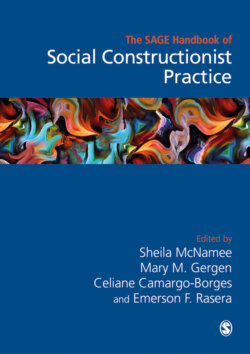Читать книгу The Sage Handbook of Social Constructionist Practice - Группа авторов - Страница 106
На сайте Литреса книга снята с продажи.
Relational Ethics
ОглавлениеSheila McNamee (2018, p. 364) refers to relational ethics as one that ‘centers attention not on individuals and their isolated actions but relational processes of engagement. In other words, a relational ethic focuses on what people do together and what their “doing” makes. Thus, there is – by necessity – a relative nature to ethics. I refer to this relational ethic as relational responsibility’. She expands to distinguish the difference between the traditional code of ethics and relational ethics.
The difference, however, is that rather than champion a dislocated code of ethics as the truth, our relational focus provides us with the resources for seeing a standardizing ethical code as coherent within a particular community (i.e., usually a specific professional community, such as the law, healthcare, mental health, education). Our challenge is to respect the professional code of ethics to which we are bound and simultaneously maintain respect and curiosity for the diverse and complex moral orders created in the lives of those with whom we work. Important to note here is that the potential for incommensurate lifeworlds is enormous. Furthermore, as each of us is immersed in multiple communities simultaneously, the potential for difference is expanded even further. Each of us embodies multiple and often contradictory and/or incommensurate moral orders. We live in language; this is what distinguishes us from other creatures. (p. 367)
Once the guests have agreed to participate, they decide, where and how the conversations will take place – in person, blogging, by skype/zoom conference; individually or in a group; the kind of agreements they would like to have during the process; what names will be used – the participants could opt to have their legal names or choose those by which they want to be identified; ‘ownership’ of the knowledge generated; the possibility of editing what was said and how was it said; the use of the information – just for the thesis or if an article could be written about it; the length of time that this inquiry will take; and any other item they deem it necessary to clarify.
These relational moments are the beginning of what McNamee and Hosking (2012) suggest is an inquiry, from a socio-constructionist and collaborative perspective, which can be described as a social practice resting on an action driven by the individuals working together. All these conversations are recorded and, preferably, videotaped.
